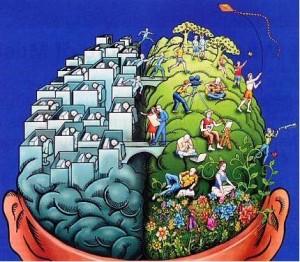Telekinesis and Psychokinetic Powers
There are many mysteries implicit in the psyche of the human animal, unknown regions of the subconscious mind, and uncharted parts of the brain with innate functions yet to be exercised. Some people who practice a science of the mind claim to have the ability to perform what seem to be supernatural feats, but which ultimately have a rational explanation, even if it is beyond human reason. The art of telekinesis, which is an aspect of psychokinesis, is the apparent ability to move objects (including oneself in the case of levitation) without using physical force, to exercise mind over matter by channeling energy from the mind, body, spirit and soul from the point of the body’s own centers of energy to influence the physical world around them.
Among these are those who claim to possess the power to bend spoons or read cards by merely manifesting the intent, and art or science of the mind that in a benchmark of parapsychological research. Skeptics often allege that such feats are the product of sleight of hand, parlor tricks, and clever magic tricks that can be reproduced in a similar environment without controls, and definitely not an example of mind over matter. Believers, however, persist in their claim that the phenomena is real, that the subconscious mind retains innate powers that most people have merely failed to develop.
Such assertions are not the sole property of self-named psychics, paranormal celebrities, or even, indeed, magicians, but have an ancient root in many of the world’s religions. Some of the powers in that context include clairvoyance or telepathy, the ability to know the thoughts and intents of another person’s heart, communication with the dead, levitation, turning objects into living creatures or vice versa, and multitudes of other claims. In the Old Testament, Joseph interprets dreams and turns staffs into snakes. In the New Testament, Jesus is resurrected from death, and a later believer is baptized in one location and comes up out of the water in another, hundreds of kilometers away.
The science of the mind that can produce such feats as mind over matter, whether it arises from the subconscious mind or is a concerted effort of the mind, body and spirit, also is evidenced in numerous claims of healers, both in conventional religion and in animist or shamanic practices. Healers influence the physical aspect of the human body by casting out disease or miraculously generating new cells – in elaborate cases, bringing the dead to life. Modern practitioners sometimes refuse medical attention because they would see it as a denial of their faith in the power of the mind over matter and in God.
In any case, there is a connection between modern claims to psychokinesis, telekinesis and religious faith in the supernatural, although people in the latter category often critical and skeptical of the former. One might, however, consider the whole basis of spiritual life as a paranormal claim, the notion that there is more to existence than physical reality.


















